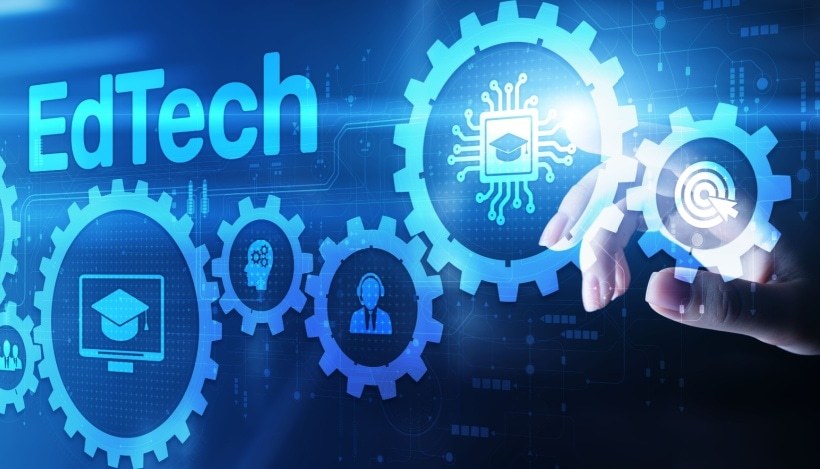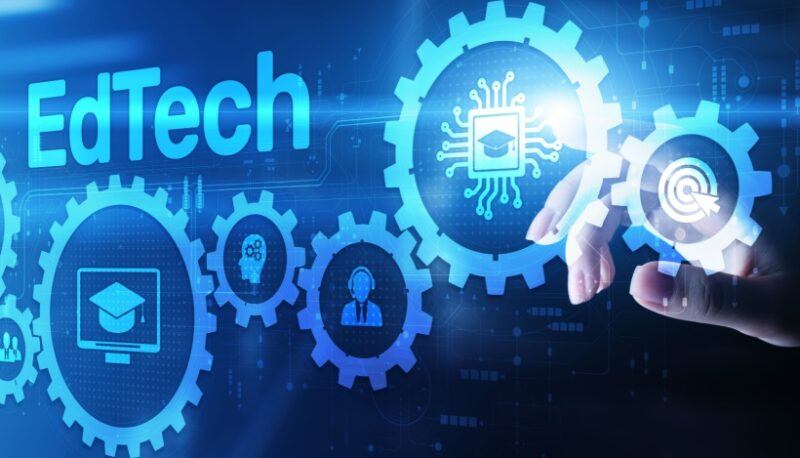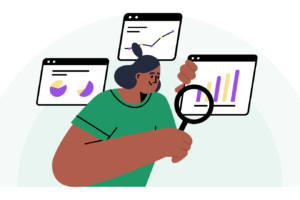
Data Enrichment For EdTech Companies: Smarter Learning

Unlocking Smarter Learning In EdTech
Imagine a student who excels in arithmetic but struggles with calculus. Or think of an employee in a corporate training program who retains information best through visuals. A teacher or a manager can immediately notice these differences. But the main question is: will your AI-driven eLearning platform recognize them too?
The promise of AI in the education and learning sector is immense. Although AI can never replace the expertise and experience of human educators that improve with age, advanced eLearning platforms can help offer personalized lessons. But for the model to do so, it must be trained on quality data.
Therefore, sitting on mountains of data, such as test scores, course completions, and attendance logs, doesn’t help an EdTech company unless enriched with all the necessary details. Simply put, adding context to the existing data makes it more meaningful. And that’s why data enrichment services are important for EdTech companies to drive smarter learning powered by AI.
What Is Data Enrichment In eLearning?
Data enrichment is the process of enhancing raw educational data with context and behavioral information. Using this enriched data, EdTech companies can build detailed learner profiles, which in turn, help them provide more tailored, context-aware educational experiences. Moreover, adding demographic details to learner profiles isn’t limited to age or grade level. These include learning preferences, accessibility requirements, and cultural background factors. All these pointers shape the educational engagement of the learner.
In addition to this, a data enrichment company can also enhance a student’s profile with their primary language, prior exposure to the education system, and family academic background. As a result, AI systems can recommend culturally relevant content and adjust difficulty levels to better match the learner’s unique journey.
What’s more? Enriching behavioral data involves examining how learners engage with content over time. These include tracking time spent on a task, when students are most focused, and how they respond to feedback. Most importantly, data enrichment also helps EdTech companies identify the signs of frustration and plan their activities and sessions accordingly.
This way, they can also understand whether repeated video replays reflect confusion with the material, distraction, or simply fatigue. In short, behavioral data enrichments turn surface-level metrics into insights about attention spans, comprehension rates, and engagement drivers.
Lastly, skillset and competency enrichment, which includes skill mapping, mastery tracking, and gap analysis across multiple domains, further augments the existing database. Using this insight, AI-powered learning platforms can create knowledge graphs and, accordingly, provide precisely targeted recommendations and learning resources. Having explored the different types of enrichment in education and eLearning, let’s see how this enhanced data paves the way for smarter learning fueled by the latest technologies in the next section.
How Data Enrichment Enables Smarter AI-Powered Learning
It is through data enrichment that standard AI-driven systems become more responsive and create intelligent learning environments. These environments enable EdTech companies to deliver meaningful and personalized educational experiences. There’s more to what data enrichment can do for EdTech companies. Let’s explore them in detail one by one:
1) Personalized Learning Plans
How well an AI system understands each learner’s unique knowledge levels, preferences, goals, and constraints determines the level of personalized learning plans. One thing is certain: simple performance records aren’t enough for this. But through enrichment, platforms can access detailed learner profiles and tailor plans accordingly.
Enriched data can highlight what a learner doesn’t know, challenging concepts, and different approaches that might help. A corporate training platform, for instance, can invest in B2B data enrichment services to enhance its employee data with job roles, experience levels, and project timelines. This detailed insight can then be used to recommend learning paths that help with upskilling and can also be applied in the workplace.
What’s more impactful is that B2B data enrichment ensures recommendations align with both personal goals and organizational objectives. This allows AI systems to suggest training programs that strengthen team capabilities while advancing broader business strategies. This delivers value for both the learner and the company.
2) More Accurate Predictive Analytics
Traditionally, teachers would find out that students were struggling with subjects only after tests and assessments. But AI can easily identify subtle warning signs when fed with data that is enriched with behavioral insights and contextual factors. By analyzing enriched patterns, such as problem-solving approaches, engagement with prerequisite material, and response to feedback, AI-based eLearning platforms can highlight learners who would benefit from timely support.
Dropout risk models also become far more accurate when the enrichment process adds motivational and environmental factors to traditional academic data. Thus, EdTech providers can address the root causes of disengagement rather than reacting to symptoms at a later stage.
3) Better Adaptive Assessments
Test data is just one part of evaluating a performance. Data enrichment converts assessments into dynamic, adaptive experiences that evolve in real time with learner needs. For instance, enrichment can reveal that a learner performs best with visual materials and responds positively to gamified challenges. Armed with this insight, eLearning platforms can adjust question difficulty, format, and timing to enhance both accuracy and learner confidence.
Talking of corporate learning, adaptive assessments enriched with role-specific competencies ensure evaluations mirror real-world job demands rather than abstract theory. This results in training that translates directly into workplace impact.
4) Enhanced Content Recommendations
With enriched behavioral and contextual data, AI-based eLearning recommendation engines provide content that is both relevant and engaging. Instead of relying solely on collaborative filtering, systems trained using enriched data understand learning objectives, knowledge gaps, and motivational triggers.
Suppose a professional has a tight work schedule but needs to complete certain certifications to upgrade themselves. Here, an AI-based platform powered by enriched data, such as availability, personal preferences, and deadlines, can recommend short microlearning modules that help an employee meet certification requirements while fitting into a tight work schedule. This ensures that content actually feels a value add-on rather than overwhelming.
These are some of the ways data enrichment fuels AI-powered smart learning. Moving on to the next, let’s explore some use cases of data enrichment for EdTech companies in the next section.
Use Cases Of Data Enrichment For EdTech Companies
The core purpose of data enrichment is to enhance the quality of existing datasets. That said, the real-world applications of data enrichment illustrate its revolutionary potential across the education sector. Let’s take a closer look at some of these use cases here:
1. LMS Platforms
Learning Management Systems (LMS)s trained on user data enriched with learning styles, competency levels, and engagement patterns can make automatic course adjustments, provide culturally sensitive recommendations, and optimize pathways for multinational teams. A compliance course, for example, can be presented differently to learners in Tokyo versus New York, while still achieving consistent learning outcomes.
2. Online Course Providers
Online course platforms can recommend course bundles that align with industry needs. But in the backend, these must be trained using demographic data enriched with career goals and skill-level assessments. For instance, a marketing professional might be guided toward a mix of analytics and AI tools training, aligning personal growth with market demand.
3. Corporate Learning Solutions
Here, the most advanced level of data enrichment is used. A seasoned data enrichment company layers employee learning data with role-specific competency frameworks, project requirements, and succession planning needs. Guess the results? Training material that boosts individual performance and yields quantifiable ROI.
4. K-12 And Higher Education Platforms
Data enrichment supports equity in learning by accounting for socioeconomic factors, language barriers, and accessibility requirements. This ensures students receive tailored support. It doesn’t matter whether the support is in the form of additional tutoring, accelerated programs, or content adapted to unique learning needs.
Summing Up
Every learner, no matter whether a school student or a corporate employee, has a unique journey. But one thing is common for all of them: wanting tailored educational experiences. An AI algorithm alone isn’t enough to meet this demand. What’s important is that the model is trained using enriched data. And, EdTech companies that rely only on raw, basic data limit their ability to deliver intelligent, adaptive learning. On the other hand, enriching datasets with context, behavior, and predictive markers helps edtech companies build platforms that truly understand learners. That said, the best way to do so is by investing in professional data enrichment services.
References:
Source link



